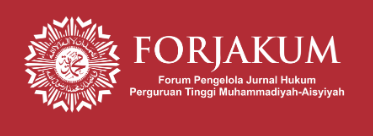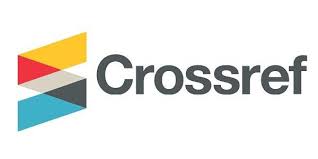PENERAPAN SINGLE BAR SISTEM DALAM RANCANGAN UNDANG-UNDANG ADVOKAT PASCA PUTUSAN MAHKAMAH KONSTITUSI
DOI:
 https://doi.org/10.37859/jeq.v8i2.4950
https://doi.org/10.37859/jeq.v8i2.4950
Abstract
Referring to Article 28 paragraph (1) of the Advocate Law as the legal basis for the establishment of a single organization for the advocate profession named PERADI on December 21, 2004, the establishment of PERADI is a manifestation of a single bar association and has implications for the unification of the Indonesian advocate profession in a single organization for the advocate profession. only one, so that it is hoped that advocate organizations will become solid and can take part in improving the quality of advocates, curbing violations of the code of ethics for the advocate profession and eradicating judicial corruption. However, there are camps that disagree with the single bar, namely the Indonesian Advocates Congress (KAI) and the Association Indonesian Advocates (PERADIN) who approve of the multi bar system claim the multi bar system as an ideal system for Indonesian advocate organizations because it is considered in accordance with the mandate of Article 28E paragraph (3) of the 1945 Constitution, even though harmony and alignment are important for good competence for advocate organizations which has implications also to its members, this writing discusses the single bar post-judgment system of the supreme court and also provides input for the upcoming advocate
Downloads
References
Buku
Adji, O. S, Peradilan bebas negara hukum. (Jakarta: Erlangga), 1980, Hlm 253
Asshiddiqie, J. . Pokok-pokok hukum tata negara Indonesia. (Jakarta: PTBhuana Ilmu Populer), 2007, Hlm 520-521
Bermartabat (Jakarta: RajaGrafindo Persada, 2012), hlm 367.
E. Elviandri, and A. I. shaleh, "Perlindungan Pekerja Migran Indonesia Di Masa Adaptasi Kebiasaaan Baru Di Provinsi Jawa Tengah," Jurnal Pembangunan Hukum Indonesia, vol. 4, no. 2, pp. 245-255, May. 2022. https://doi.org/10.14710/jphi.v4i2.%p
Franz Magnis Suseno, Etika Politik: Prinsip-Prinsip Moral Dasar Kenegaraan Modern (Jakarta: PT. Gramedia Pustaka Utama, 2001) hlm 121. Sudargo Gautama, Pengertian Tentang Negara Hukum (Bandung: Alumni, 1973), hlm 20-21. Bambang Aryanto, Tinjauan Yuridis Pembubaran Organisasi Kemasyarakatan, Perspektif Hukum, Vol. 15, No. 2 2015, Hlm 132.
H. Bomer Pasaribu, Arah Pembangunan Hukum Menurut UUD 1945 Hasil Amandemen Dari Prespektif Program Legislasi, Badan Pembinaan Hukum Nasional Departemen Hukum dan HAM RI, Majalah Hukum Nasional (1), 2007, h. 164-165.
Lusia Sulastri et.al Merajut Sistem Keorganisasian Advokat di Indonesia, (Ponorogo: Gracias Logis Kreatif, 2021) Hlm 110-115.
Mahfud MD, Moh. (Membangun politik hukum, menegakkan konstitusi. (Jakarta: Rajawali Pers), 2012, Hlm 87-88
Malik, Telaah makna hukum Putusan MK yang final dan mengikat. Jurnal Konstitusi, 6(1), 2009,
Manan, B. Kekuasaan kehakiman Republik Indonesia. (Bandung: LPPM-UNISBA), 1995, Hlm 3
Maruarar Siahaan, “Peran MK Dalam Penegakan Hukum Konstitusi”, Jurnal Hukum, Volume 16, Nomor 3, Juli 2009, hlm 359.
Raja Adil Siregar, “Tinjauan Yuridis Terhadap Kebebasan Berserikat, Berkumpul Dan Mengeluarkan Pendapat Berdasarkan Undang-Undang Nomor 17 Tahun 2013 tentang Organisasi Kemasyarakatan”, JOM Fakultas Hukum, Vol. 2, No. 2 (2015), Hlm 6.
Safa’at, M. A., Ekatjahjana, W., Fatmawati., Saifuddin., & Amsari, F. Hukum acara MK. Jakarta: Sekretariat Jenderal MK RI, 2011, Hlm 60
Satjipto Rahardjo, Sosiologi Hukum Perkembangan Metode dan Pilihan Masalah, (Surakarta: Penerbit Muhammadiyah, 2004), hlm 1. Bandingkan juga dalam Satjipto Rahardjo Ilmu Hukum, (Bandung: Penerbit Citra Aditya Bakti, 2000)), hlm 70.
Soeroso, F. L. Pembangkangan terhadap Putusan MK. Jurnal Yudisial, 6(3), 2013, Hlm 227-249.
Teguh Prasetyo and Abdul Halim Berkatullah, Filsafat Teori Dan Ilmu Hukum: Pemikiran MenujuMasyarakat Yang Berkeadilan Dan












